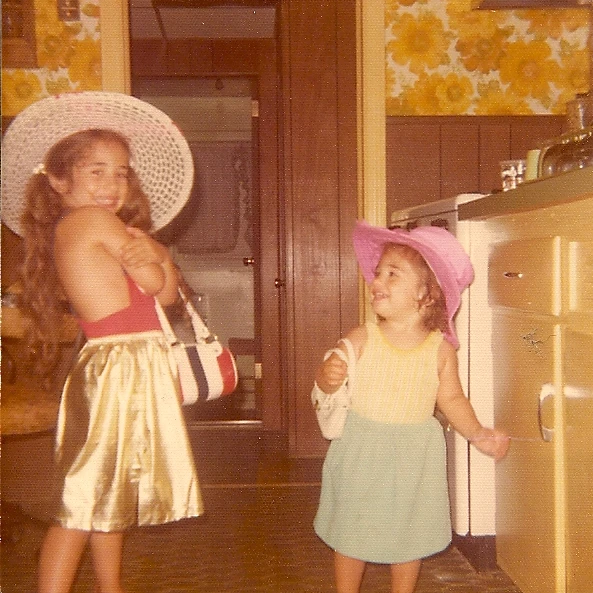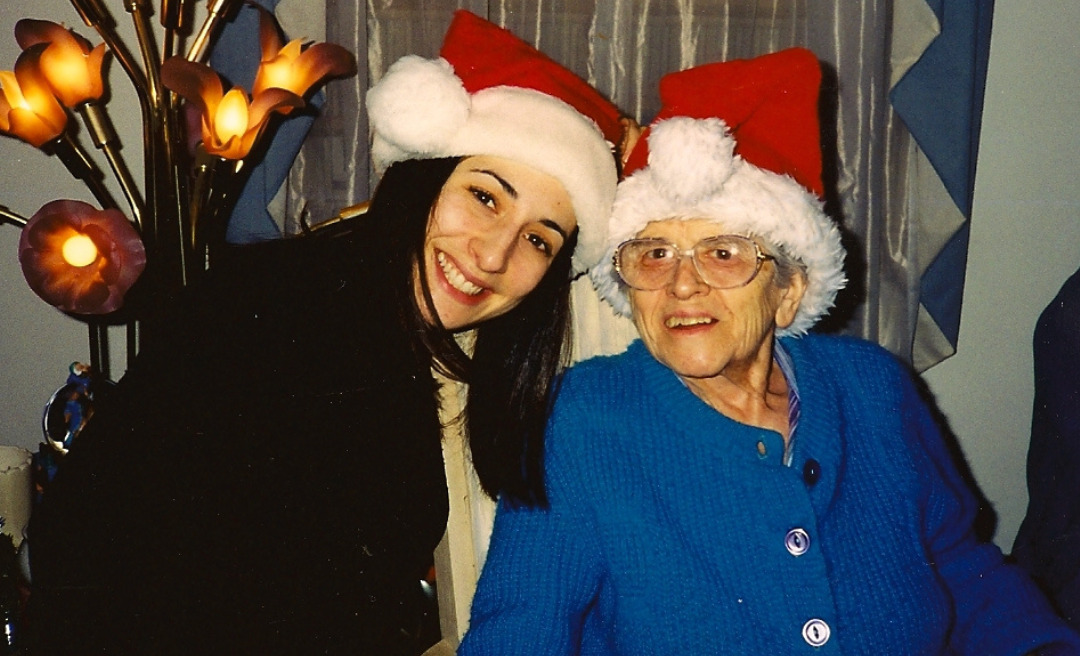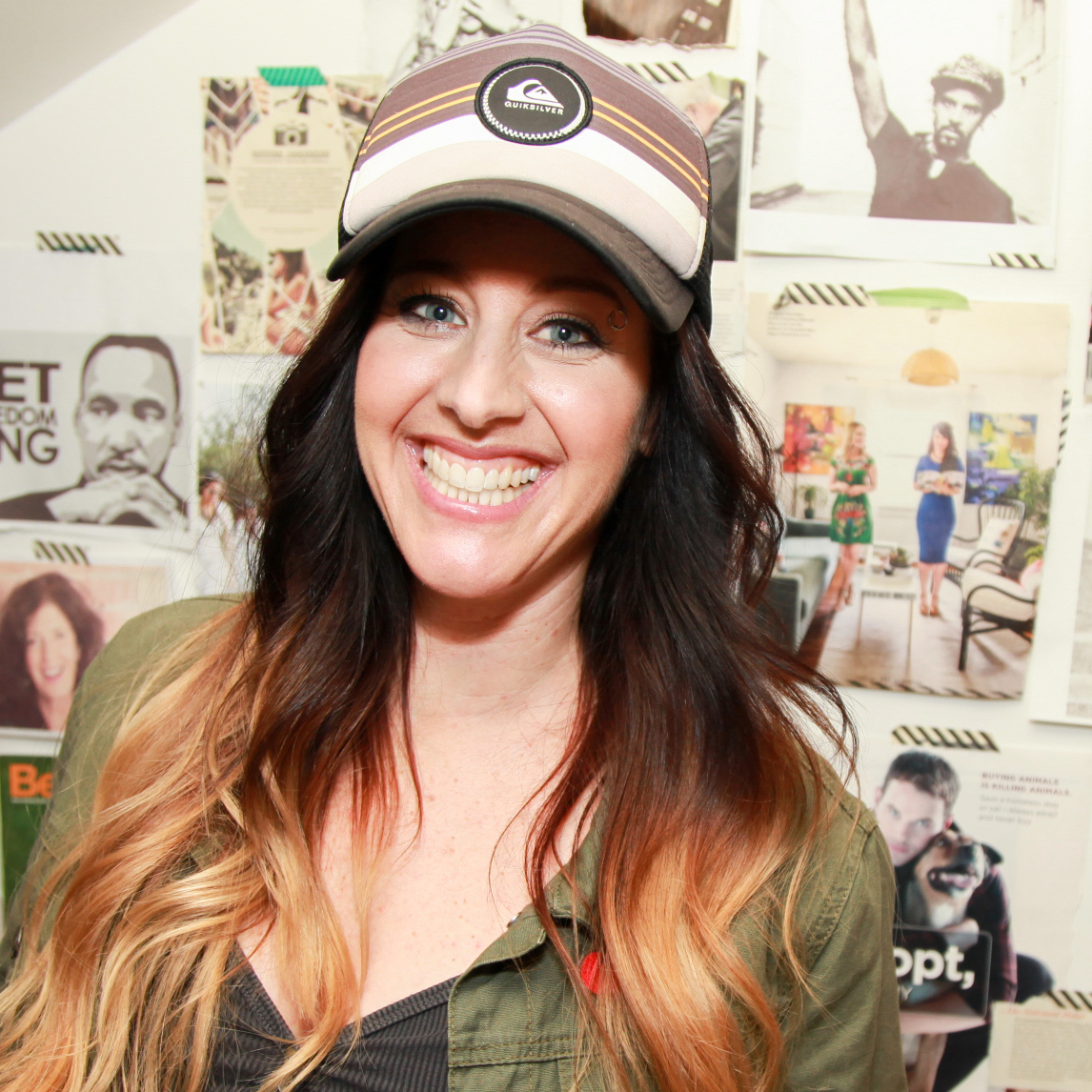
Sisters. There have been books, films, fairytales and poems written about their devoted or tumultuous relationships. From Cinderella’s wicked pair, to Elsa and Anna’s Frozen-solid bond, fictional sisters have wounded, betrayed, healed and rescued one another since the beginning of time.
Most sisters have a complicated relationship that’s probably survived one or more of these experiences.
When we were little—especially before our baby brother was born—my sister Nicole and I were inseparable. We shared a room, and stayed up until the wee hours of the night laughing and listening to the radio when we should have been sleeping. But as teenagers, we started to drift. Almost four years apart, we each had a unique set of friends and interests. Then, I went off to college and the gap widened.
It wasn’t until I got married and gave birth to my first child that my sister and I found our way back to one another. Nicole made an excellent auntie who pampered our daughter with cute little outfits and babysat for her when my husband and I needed a breather. A few years later, when she was married and pregnant with her own daughter, motherhood solidified our sisterly bond.
Still, over the years we had our share of disagreements, which mostly surfaced in the form of sharp words. (There may have also been a catfight or two, which we laugh about on the More Beautiful Podcast.) Looking back, I think our conflicts were mostly due to our different perceptions of childhood events and how we were parented during our formative years. As the oldest of three, I felt like I had to be another “mother” to my siblings and was affected more directly by our parents’ and grandparents’ neuroses. In turn, my sister felt like she was sometimes in my shadow, and that I didn’t always treat her like an equal. Combine that with the fact that our extended family, like most at the time, was prone to labeling kids and assigning them certain roles within the family structure (the smart one, the responsible one, the flexible one, the funny one, the sweet one—you get the idea).
Deborah Tannen, professor of linguistics at Georgetown University and author of You Were Always Mom’s Favorite!, writes that because sisters know one another so well, they have the power to either build each other up or deeply wound each other. She identifies “sisterspeak” as a communication sisters share based on a common upbringing and history, and explains that this special language can be loving, but also hurtful. In other words, sisters know how to push each other’s buttons.
Turns out, there’s a scientific reason why siblings should try to overcome the past and strengthen their relationship. According to The American Journal of Psychiatry, research shows that people who are emotionally close to their siblings have higher life satisfaction and lower rates of depression, particularly in midlife. In times of stress or trauma, like taking care of an ill parent, siblings can provide essential emotional support. Of course, not all relationships can be salvaged—especially when one sibling doesn’t want to do the work—but most can, and are worth the effort.
Over the past decade, my sister and I have deliberately strived to rewrite the age-old assumptions we had about one another, as well as let go of childhood grudges that may have been preventing us from getting closer. We’ve had many long talks, both on the phone (as we live on opposite coasts) and in person. As a result, I think we’ve gotten to know each other better as the women we are now—as opposed to the kids we were back then.
Our relationship was put to the test recently when our mother’s health deteriorated substantially during the pandemic and she was diagnosed with Alzheimer’s. Nicole was bearing the brunt of the work, so I flew back East where we spent more than a month together, transitioning Mom into assisted living, then cleaning out our family home. I have to admit, I was worried about us spending that much time together (as I’m sure she was), wondering if we’d argue and regress to old behavior patterns. But amazingly, we didn’t. The stress and heartbreak of our family situation required us to work together and support one another like never before.
When we weren’t doing manual labor like assembling furniture for Mom’s new apartment, driving her to a doctor’s appointment or errands, shredding 40-year-old bank statements or lugging boxes into a dumpster, we took long hikes together, and had deep conversations about everything that was going down.
At the end of one 12-hour day, we walked, dirty and exhausted, into the town we grew up in for dinner. Over a big meal and an even bigger glass of wine, we talked until we had helped one another make sense of everything: what was happening to our mother, how past family tragedies—including the death of our father at age 46—shaped our family dynamics, how scared we were of getting dementia one day. We laughed, we cried, we reminisced. I realized how much I missed being close to her.
Nicole and I now acknowledge that getting older has changed us into vastly different people than the “big” and “little” sisters we used to be, and have been rediscovering each other on a whole new level. We are no longer just sisters, but friends.
I believe the maturity and wisdom that come with midlife have also helped us reconnect in a meaningful way. Because we have the same family medical history and genetics, we can compare notes about changes in our bodies and encourage each other in pursuing a healthy lifestyle. Because we have kids around the same age, we can relate to each other’s experiences raising teenagers. Yes, my sister still can push my buttons (as I’m sure I do hers). But she also shares my wacky sense of humor, knows my story better than anyone, and “gets me” like no one else does.
If that means we get into a catfight every few decades, I’ll take it.
Listen to my podcast conversation with Nicole here.



